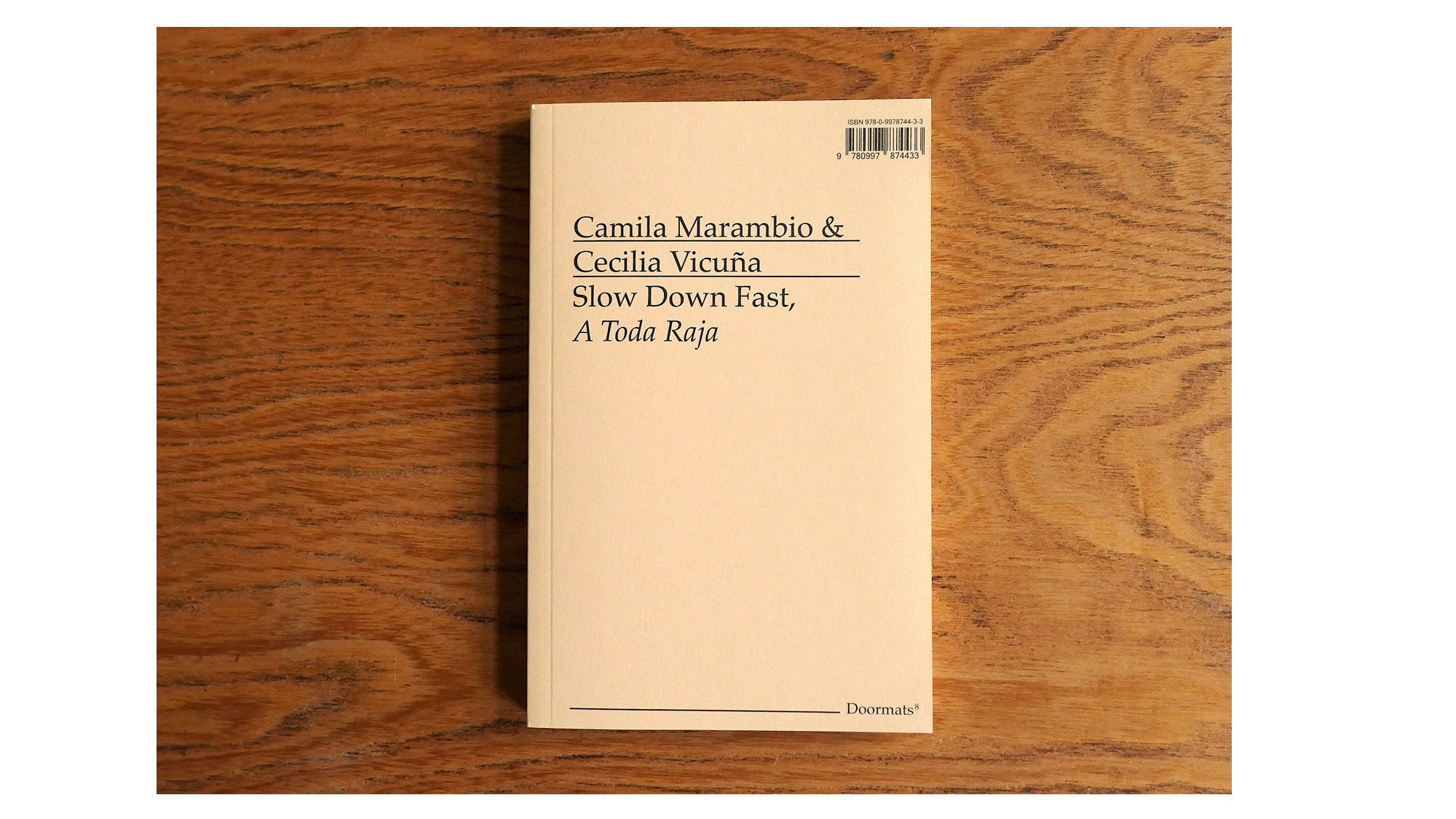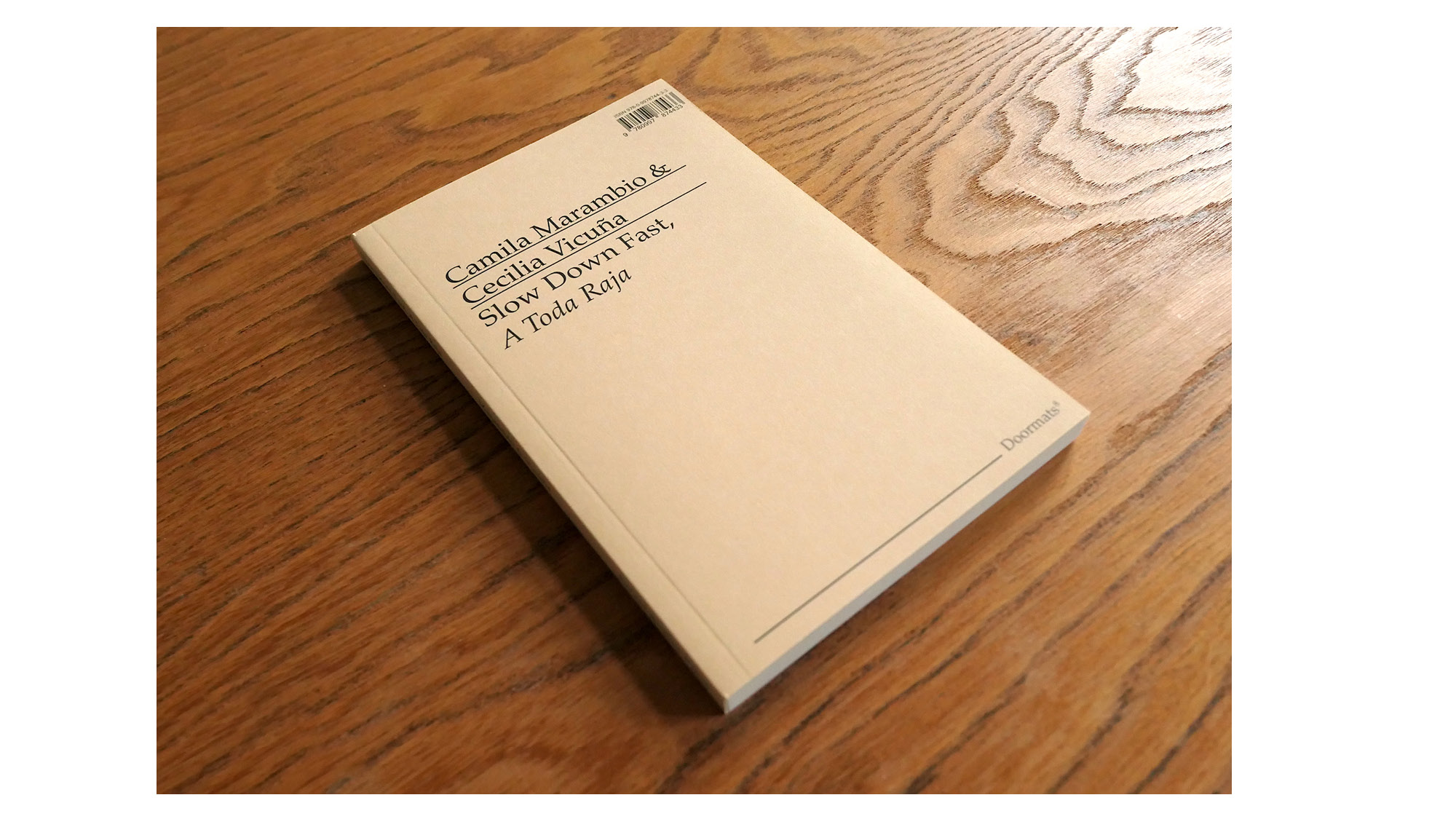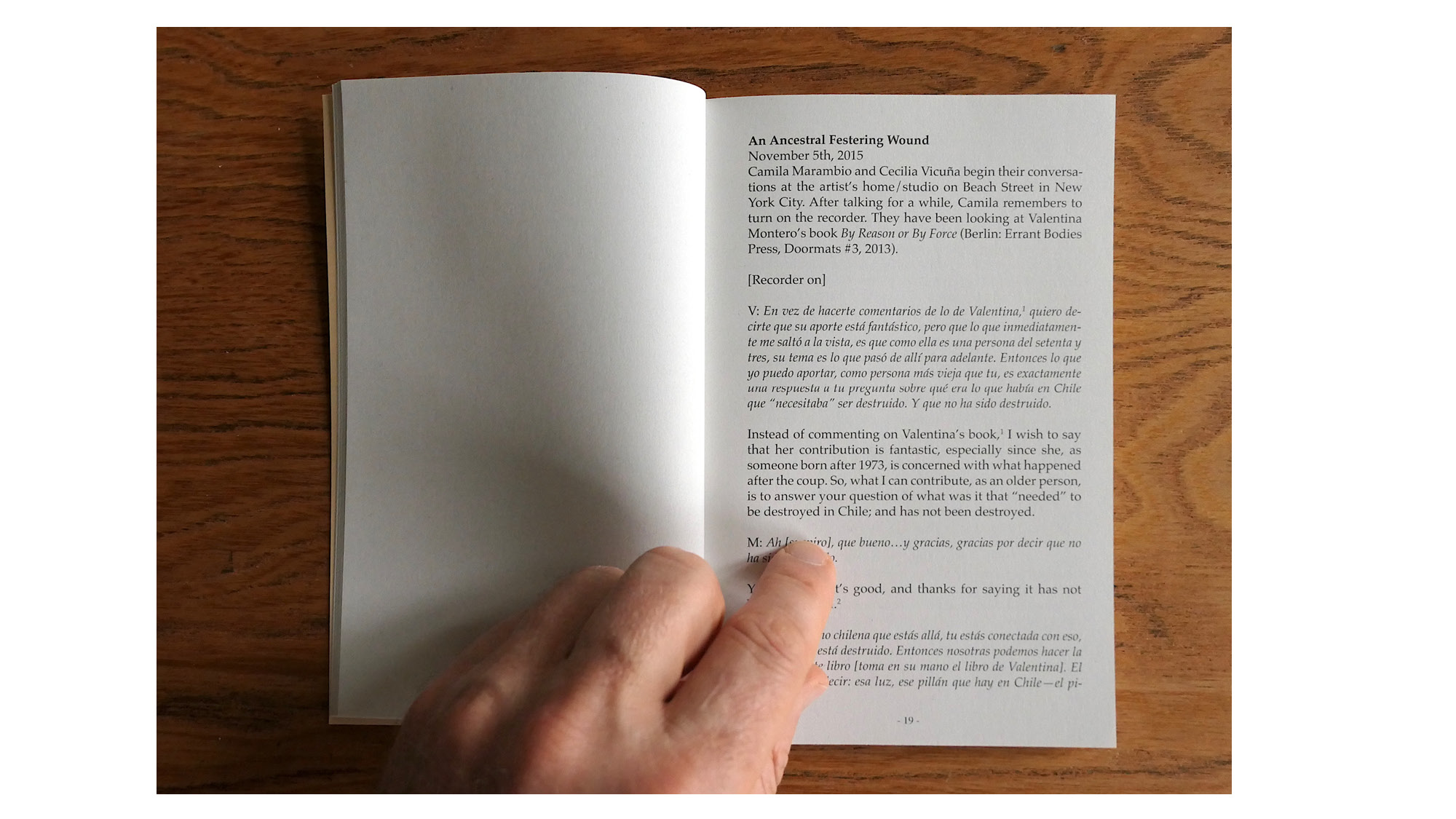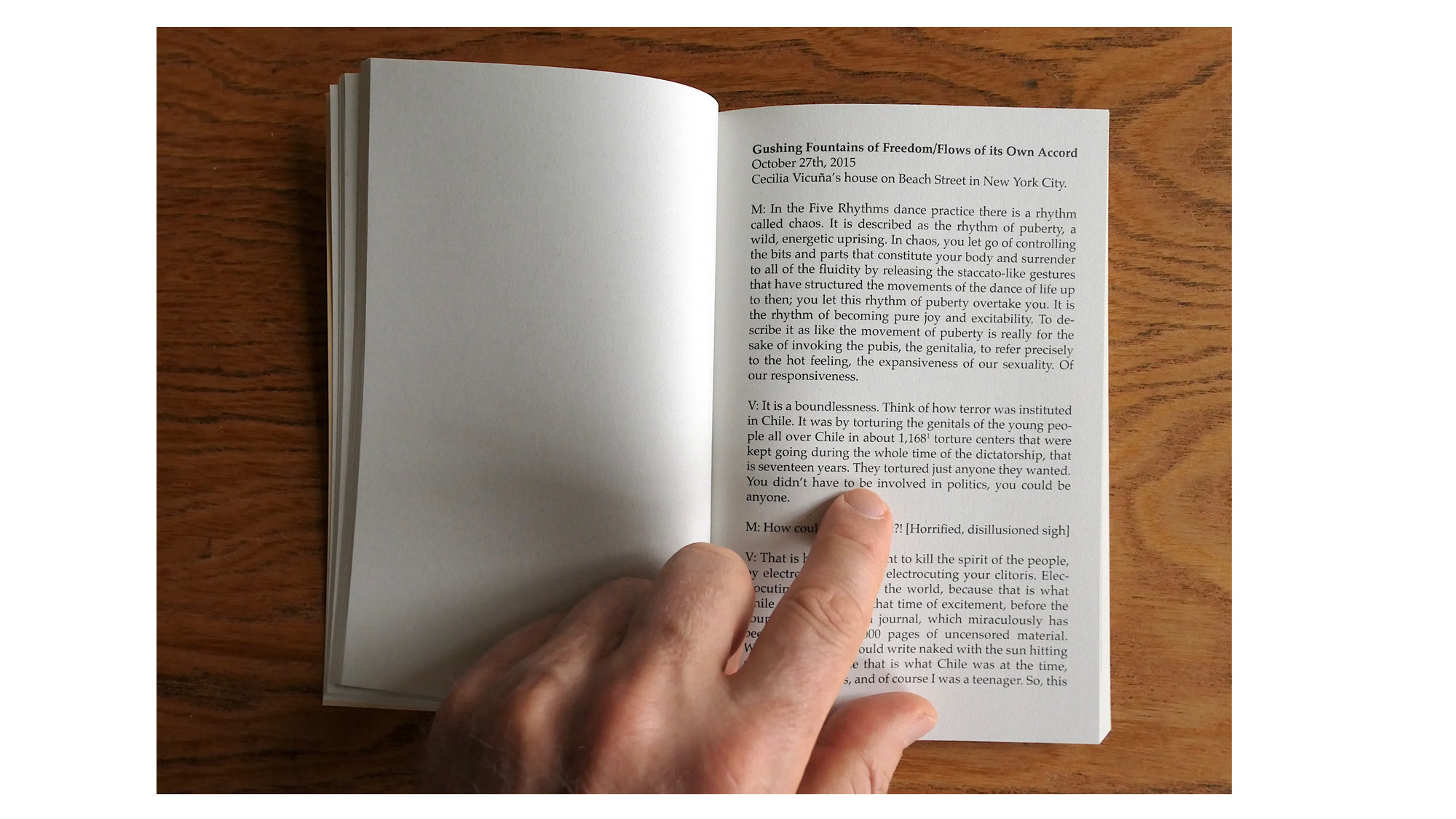



ISBN: 978-0-9978744-3-3
11,4 x 17,8 cm (softcover)
168 pages (b/w ill.)
Published: June 2019
→ les presses du réel (EU)
→ DAP (US)
CECILIA VICUÑA’s work has addressed ecological destruction, human rights, and cultural homogenization, since her first poems and paintings, made in Chile during the 1960s. Her performances and installations, such as the Quipu (created in nature, streets, and in museums), combine ritual and assemblage elements in a practice that Vicuña calls lo precario (precariousness): transformative acts that bridge art and life, the ancestral and the avant-garde. Her paintings, poetry, and Palabrarmas (prints and collages that create new meanings by decomposing signifiers in words) all propose a free and futuristic vision considered pioneering indigenous decolonization. Her work can be found in the collections of museums such as the Guggenheim and MoMA in New York, the Tate Modern, London, MoMA and the Guggenheim Museum in New York and the Museo Nacional de Bellas Artes in Santiago, Chile. Her first retrospective exhibition, Veroir el Fracaso Iluminado/Seehearing the Enlightened Failure, organized by the Witte de With Center for Contemporary Art in Rotterdam, the Netherlands, opens on May 26th, 2019.
CAMILA MARAMBIO is the founder, director and curator of the nomadic research program Ensayos. Since 2011, Ensayos brings together artists, scientists, lawyers, indigenous elders and others to exercise collective emergent forms of bio-cultural ethics at the world’s end. To see the most recent Ensayos experience tune into the first season of the more-than-human web series DISTANCIA at www.ladistancia.tv.
Slow Down Fast
by Camila Marambio & Cecilia Vicuña
In this brilliant intergenerational dialogue curator Camila Marambio and Cecilia Vicuña, one of the most intriguing Indoamerican artists of our times, converse about mestizaje/miscenegation, ecological disaster, eroticism and decolonization in their multilingual, subversive and irreverent humorous slang. The result is a unique book that presents a conversation that is both poetic and critical. The particular dialogue presented in the book crosses over from Spanish to English, from poetry to academic argumentation, and from art to science. It proposes a necessary method for de-colonial liberation, which reveals the transformative power of art in search of “an ecology of the soul, the resplendence of our connectivity to each other and the cosmos.”
Camila Marambio asks: So, the question is how can we revert this process of appropriation and corruption of indigenous knowledge so that the renewed interest be a liberating force and not another form of masquerade colonization?
Cecilia Vicuña answers: We are the corrupted code, we have embodied it, and we reproduce it unwillingly. How else to understand our indifference to self-destructiveness? Only through “decolonizing ourselves,” seeing our own trampas, pitfalls, can we begin to approach a true change.
The true performance is that of our species on Earth: the way we cause suffering to others, the way we warm the atmosphere or cause other species to disappear. When we began this book-conversation in 2015, we shared a practice of the transformative power of performance, or pre-formance, dreaming of ways to extend it. Today, the #MeToo movement, #BlackLivesMatter, the feminist rallies around the world on #March 8 - 2019 and other mobilizations for refugees and ecological justice have changed the meaning of past and future performance, unleashing the potential of a quantum change in collective consciousness. May this rising energy be empowered, and may our words serve IT.